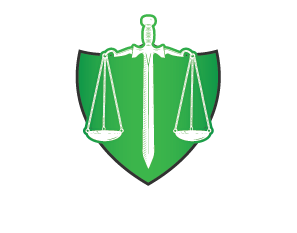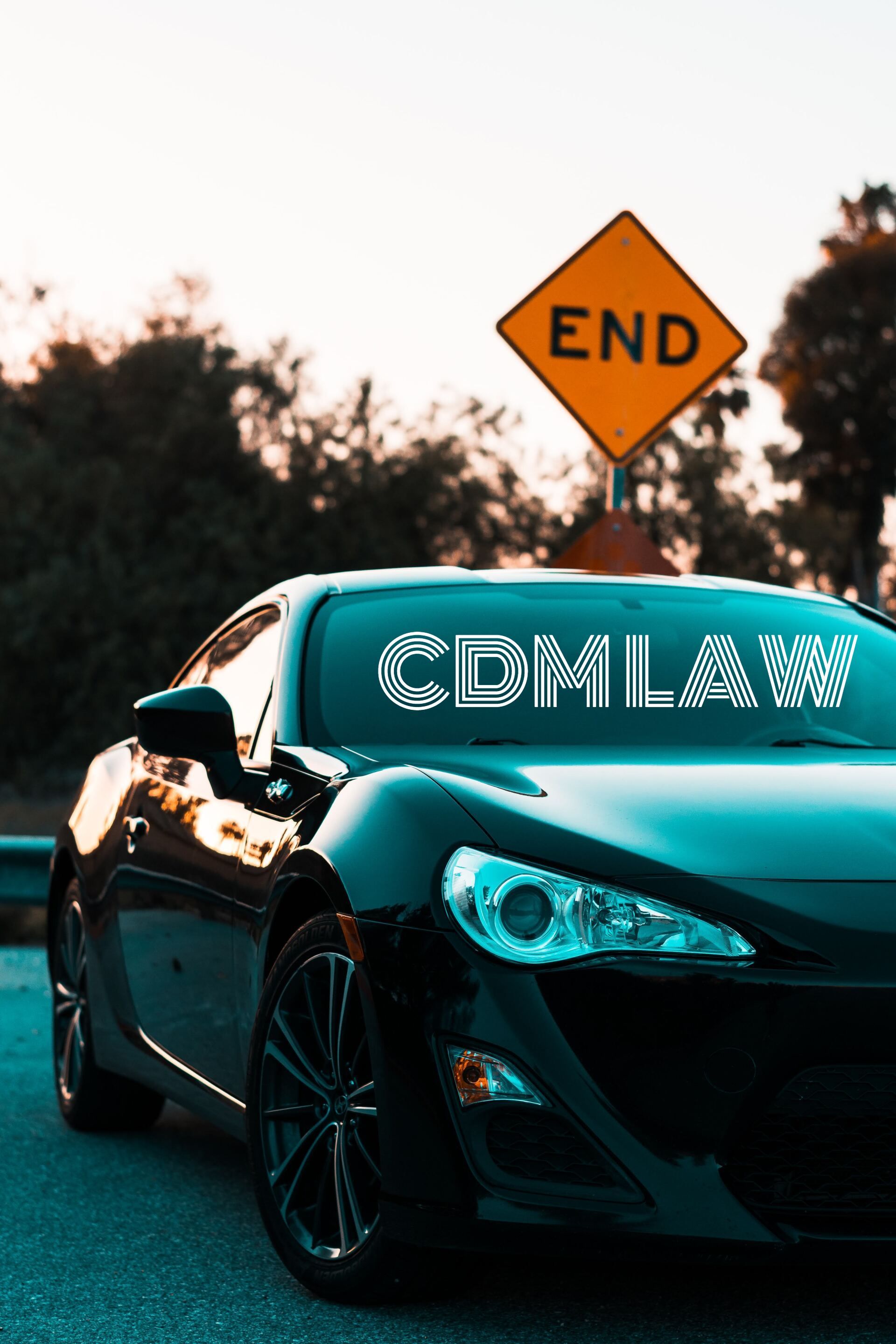
Pennsylvania Driving Under the Influence Overview
Pennsylvania DUI Attorneys

The CDM Law Difference - Pennsylvania DUI Lawyers
With many years of criminal trial experience, CDM Law has handled hundreds of DUI cases, and our Attorneys have both prosecuted and defended DUI cases. Former Prosecutor, Christopher Mandracchia started his career as a DUI prosecutor and brings his years of DUI experience and training to our clients at CDM LAW. Each client’s case is unique and must be treated as such, so we strive to communicate and listen to help you achieve your best result. We will help you through the Preliminary Hearing, ARD process, file suppression motions, Habeas Corpus Motions, or take your case to trial, whatever your case requires. We have years of experience taking cases to trial and obtaining successful verdicts.
We have experience with aggravated assault while DUI, homicide by vehicle, first offense DUI, second offense DUI, third offense DUI, fourth offense DUI, cannabis DUI, Drug DUI (3802[d]), prescription DUI’s, DUI accidents, Actual Physical Control (ACP) cases, leaving the scene of the accident, fleeing/eluding, and many other Pennsylvania DUI and DUI related offenses.
Although the conditions and severity differ from case to case, here at CDM Law in Conshohocken, Pennsylvania, we strive to get you results. Whether it is a first offense or a fourth offense, ARD case or Jury Trial case, CDM LAW has the knowledge and experience to handle your case. Here at CDM Law, we will do everything we can to make sure your life is not defined by your DUI charges. If you or someone you know needs a DUI attorney, don’t wait—contact CDM Law today! 610-994-0281
Pennsylvania DUI Law is codified under 18 Pa.C.S.A. §3802. DUI case needs to be analyzed. First, the traffic stop. Why were you stopped? Were you in an accident? Were you pulled over? Was it legal? Were you actually driving outside the lines? Were you swerving? In Pennsylvania, the Police need probable cause of a motor vehicle violation to pull you over, however, if the offense that you are being stopped for requires a continuing investigation, then the proper standard for the DUI stop would be reasonable suspicion. DUI investigations continue after the stop, and often with the officer noticing that the individual driving the vehicle smelled of alcohol and/or drugs and had bloodshot, glassy eyes and/or slurred speech. Under Pennsylvania Law, the smell of marijuana is not, by itself, the probable cause for criminal activity.
After you are stopped you are likely removed from your car and subjected to questioning and/or testing. You are then likely asked to perform Standard Field Sobriety Tests (SFSTs) on the side of the road and you likely failed. This is a common situation where most of the evidence for a DUI is gathered. These SFSTs are voluntary and not required, however, if you refuse you will likely be taken in for blood or breath testing. Were the SFSTs performed properly? Was your blood drawn within two (2) hours? Did you admit to drinking? Did you slur your speech?
Another common situation is where the officer smells marijuana and requests to search your car or wishes to search your car prior to towing. Depending on what is in your car, this could lead to more issues. You are then, at some point, told that the officer believes that you are “under the influence to a degree that renders you incapable of safely operating a vehicle” and are placed under arrest. You will then be taken for breath or blood testing. Remember: you don’t have the right to an attorney yet, but you do not have to speak. You can refuse, however, if you refuse the blood or breath test you will likely lose your license.
After the results of your tests are received, you will then be charged in accordance with the officer’s observations and the results of your blood or breath test.
As soon as you are able, you should call and hire an experienced DUI Attorney at CDM LAW. We can help you through this process and help you rest well knowing that we are your attorneys.
In Pennsylvania, the blood alcohol content (BAC) level for driving under the influence is 0.08% for those who are 21 or older and 0.04% for those operating a commercial vehicle (0.02% for school bus drivers). If a person who is under 21 is pulled over with a BAC of 0.02%, PA’s “zero tolerance” policy warrants a DUI charge (3802). Whatever the situation may be, a DUI charge has a lasting impact on a person’s life.
The Basic Elements of a DUI:
- The Defendant did drive, operate, or was in Actual Physical Control of the movement of a vehicle;
- On a roadway;
- Where the Defendant ingested a sufficient amount of drugs or alcohol that rendered him/her incapable of safely operating a vehicle;
OR
- Defendant had a certain level of drugs or alcohol in his/her system.
OR
- Defendant had ANY AMOUNT OF THC, or a schedule one controlled substance, in his/her system.
- THC is the active ingredient in cannabis/marijuana/hemp. Remember: Marijuana can stay in your system for weeks or even months.
DUI is an Escalating Offense
DUI’s are an escalating offense, meaning that the more DUI’s you get, the more severe the consequences become. A typical sentence includes jail time, loss of license, and mandatory fines. The lookback period is ten (10) years for DUIs. Whether it is a first, second, third, or even fourth offense, CDM Law has the experience to help you with your legal troubles.
Grading of Driving Under the Influence 75 Pa. C.S.A. § 3803
(a) Basic offenses.--Except as provided in subsection (b):
(1) An individual who violates section 3802(a) (relating to driving under influence of alcohol or controlled substance) and has no more than one prior offense commits a misdemeanor for which the individual may be sentenced to a term of imprisonment of not more than six months and to pay a fine under section 3804 (relating to penalties).
(2) An individual who violates section 3802(a) and has two prior offenses commits a misdemeanor of the second degree.
(3) An individual who violates section 3802 and has three or more prior offenses or has previously been convicted of a violation of section 3735 (relating to homicide by vehicle while driving under influence) commits a felony of the third degree.
(b) Other offenses.--
(1) An individual who violates section 3802(a)(1) where there was an accident resulting in bodily injury, serious bodily injury or death of any person or in damage to a vehicle or other property, or who violates section 3802(b), (e) or (f) and who has one prior offense commits a misdemeanor for which the individual may be sentenced to a term of imprisonment of not more than six months and to pay a fine under section 3804.
(2) An individual who violates section 3802(a)(1) where the individual refused testing of breath or chemical testing pursuant to a valid search warrant, court order or any other basis permissible by the Constitution of the United States and the Constitution of Pennsylvania, or who violates section 3802(c) or (d) and who has no prior offenses commits a misdemeanor for which the individual may be sentenced to a term of imprisonment of not more than six months and to pay a fine under section 3804.
(3) An individual who violates section 3802(a)(1) where there was an accident resulting in bodily injury, serious bodily injury or death of any person or in damage to a vehicle or other property, or who violates section 3802(b), (e) or (f) and who has two prior offenses commits a misdemeanor of the first degree.
(4) An individual who violates section 3802(a)(1) where the individual refused testing of breath or chemical testing pursuant to a valid search warrant, court order or any other basis permissible by the Constitution of the United States and the Constitution of Pennsylvania, or who violates section 3802(c) or (d) and who has one prior offense commits a misdemeanor of the first degree.
(4.1) An individual who violates section 3802(a)(1) where the individual refused testing of breath or chemical testing pursuant to a valid search warrant, court order or any other basis permissible by the Constitution of the United States and the Constitution of Pennsylvania, or who violates section 3802(c) or (d), commits:
(i) A felony of the third degree if the individual has two prior offenses.
(ii) A felony of the second degree if the individual has three or more prior offenses.
(5) An individual who violates section 3802 where a minor under 18 years of age was an occupant in the vehicle when the violation occurred commits:
(i) A misdemeanor of the first degree if the individual has no more than one prior offense.
(ii) A felony of the third degree if the individual has two or more prior offenses.
75 Pa. C.S.A. § 3803.
Alternative Resolutions
Trial is not always the best solution. Sometimes you need an Attorney to think outside the box and come up with unique and/or alternative solutions. CDM Law strives to work with the prosecutor’s office to provide alternative resolution to your case. In Pennsylvania, the District Attorney has the discretion to allow you to participate in an Accelerated Rehabilitative Disposition (ARD) program. ARD is a program that allows you to participate in a program that requires treatment, community service, a probationary period, and other requirements pursuant to the rules of the county where you are charged. ARD is generally for individuals with no, or minor, criminal history. This program usually minimizes the supervision and impact of a DUI by allowing you the opportunity to get an expungement after successful completion. The options vary in each county, however, we have successfully helped people obtain acceptance in ARD, treatment programs, diversion programs, and other programs designed to minimize the impact of a DUI.
If you are in need of help with a driving under the influence charge, you should consult an experienced attorney to help you with your specific situation.
Christopher D. Mandracchia, Esq. is an Attorney licensed in Pennsylvania.
Call CDM LAW at 610-994-0281 for more information on DUI's. Visit our website at MONTCODUILAWYER.COM
Serving Montgomery County Pennsylvania and the surrounding counties of Berks County, Delaware County, Bucks County, Chester County, and Philadelphia.
Disclaimer: This is not legal advice, you should consult with an attorney prior to making any legal decision. This content does not create an Attorney-Client relationship.
ADDRESS
815 Fayette ST, STE 200
Conshohocken, PA 19428
PHONE
BUSINESS HOURS
Mon 8:30 AM - 5:30 PM
Tue 8:30 AM - 5:30 PM
Wed 8:30 AM - 5:30 PM
Thu 8:30 AM - 5:30 PM
Fri 8:30 AM - 5:30 PM
Sat 8:30 AM - 5:30 PM
Available by phone out side of business hours
DISCLAIMER: The information provided in this website does not constitute legal advice and is not a guarantee, warranty or prediction regarding the outcome of any legal matter. No Attorney-client relationship is formed, or is any legal advice provided by visiting this website. All case results depend upon a unique set of factors, previous case results should not be viewed as typical or indicate the outcome for any other case. Every case is different. Results depend on the unique law, facts and circumstances of each case. No representation is made that the quality of legal service to be performed is higher than that performed by other attorneys. No representation is made that the lawyers are certified specialists or experts in any field of law. No attorney-client relationship is formed by visiting this website. CDM Law is a Pennsylvania Law Firm.
